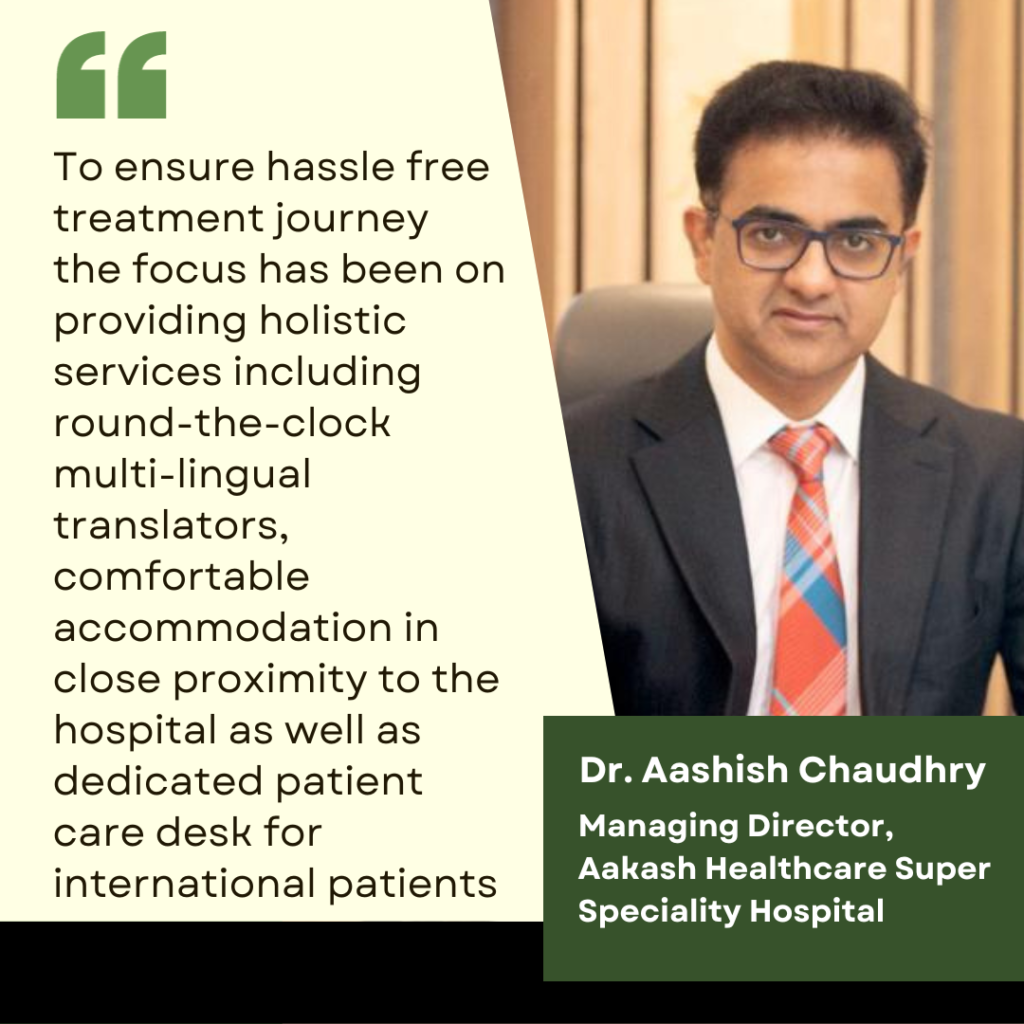Rao Narender Yadav / New Delhi
The global medical tourism market is poised for sustained growth in the next few years. According to the Medical Tourism Global Market Report 2023, it will grow from $35.77 billion in 2022 to $39.95 billion in 2023 at a compound annual growth rate (CAGR) of 11.7 percent. By 2027, it is expected to grow to $59.67 billion at a CAGR of 10.5 percent. India, definitely, is set to have a major pie of this burgeoning space.
India was ranked 10th out of 46 countries in medical tourism by Medical Tourism Index 2020-21. The nine countries ahead of India in the top 10 include Canada, Singapore, Japan, Spain, United Kingdom, Dubai, Costa Rica, Israel, and Abu Dhabi. With a strong policy push, strengthening of medical tourism ecosystem, robust health infrastructure and affordability of treatment India definitely can move higher in the trajectory in next couple of years and position itself as a global health destination.
Inter-Ministry push by Govt of India
Union Ministry of Health is coordinating with other Ministries and stakeholders viz. Hospitals, Medical Value Travel (MVT) facilitators, Insurance Companies, NABH etc. to promote medical value travel in the country.
Ministry of Tourism in order to boost Medical Tourism in the country, has formulated a National Strategy and Roadmap for Medical and Wellness Tourism. The Strategy focuses on developing a brand for India as a wellness destination, strengthening the ecosystem for medical and wellness tourism, enabling digitalization by setting up Online Medical Value Travel (MVT) Portal and making governance and Institutional Framework more industry friendly.
Minister of Culture, Tourism and Development of North Eastern Region G. Kishan Reddy recently informed Lok Sabha that the Government of India has liberalized the e-Tourist Visa Scheme. At present, it has e-medical Visa and e-Medical Attendant Visa as sub-categories of e-visa. In the case of e-Medical Visa and for e-Medical Attendant Visa, triple entry is permitted and extension may be granted up to 6 months on case to case basis on merits of each case by the Foreigners Regional Registration Officers (FRRO)/Foreigners Registration Officer (FRO) concerned. Medical Attendant Visa was co-terminus with the validity of the principal e-visa holder.
Ministry of Ayush has signed a Memorandum of Understanding (MoU) with India Tourism Development Corporation (ITDC), Ministry of Tourism, Government of India to work together for the promotion of Medical Value Travel in Ayurveda and other traditional systems of medicine.
Ministry of Ayush has also developed a Central Sector Scheme namely Champion Service Sector Scheme for Medical Value Travel. Under this scheme, financial assistance in the form of interest subsidy is provided to private investors for the establishment of Super Specialty Hospitals/ Day Care Centres of the systems recognized under The National Commission for Indian System of Medicine (NCISM) Act, 2020 or The National Commission for Homeopathy (NCH) Act, 2020.
Health Industry players upping the game

Credit rating agency ICRA identifies a robust revival in medical tourism as one of the main contributors to a sequential improvement in patient footfall at hospitals throughout the FY23. Maintaining a stable outlook for the Indian hospital industry, ICRA said the industry’s performance is being driven by a surge in non-communicable lifestyle diseases, increasing per capita healthcare spending, rising awareness, expanded health insurance coverage, and a rise in medical tourism.
The influx of medical tourists to India has grown steadily from 1.83 lakh in 202O to 5.04 lakh in 2023 (till October).
Dr. Aashish Chaudhry, Managing Director, Aakash Healthcare Super Speciality Hospital Dwarka shares, “The inflow of international patients has significantly improved after the COVID pandemic has subsided. We have seen a steady growth of patients from CIS (Belarus, Kazakhstan, Kyrgyzstan, Russian Federation, and Tajikistan), African and GCC (Gulf Cooperation Council) countries. On an average Aakash Hospital gets 600-700 patients from Africa every year, who come for treatment related to orthopaedics & joint replacement, kidney transplant, liver transplant, cancer surgery, bariatric surgery etc.”
Overcoming language barriers, cultural differences, and logistics has been the biggest challenges faced by the visiting patients. Hospitals and Medical Travel Facilitators (MTFs) have been increasingly focussing on improving the overall experience of the visitors.
“To ensure that foreign patients get hassle free admission and have comfortable experience during their treatment, we have established an international patient lounge and a dedicated desk at the entrance of the hospital. There is a separate floor for foreign patients with round the clock multilingual staff stationed there well versed in languages like Arabic, Bengali and French,” shares Chaudhry.
“To minimise local travel time, patients, particularly those requiring longer stay for treatment are also being provided accommodation facilities by us. Well-connected with the airport and located in close proximity to the hospital, these are ‘homes away from home’ equipped with trained staff, to facilitate their admission, appointment and scheduling of their surgery and the attendant need not to worry for any coordination work,” adds Chaudhry.
The medical tourism ecosystem, which comprises of healthcare industry players, medical travel facilitators, government and regulatory agencies, insurance, and the travel & hospitality sector, have to work in tandem to create an enabling business environment for the sector to leap forward.
With strengthening of the governance and institutional framework and promoting wellness services along with medical treatment, Government of India, has further broadened the scope of activities with the aim to catalyse the growth trajectory of medical tourism sector.